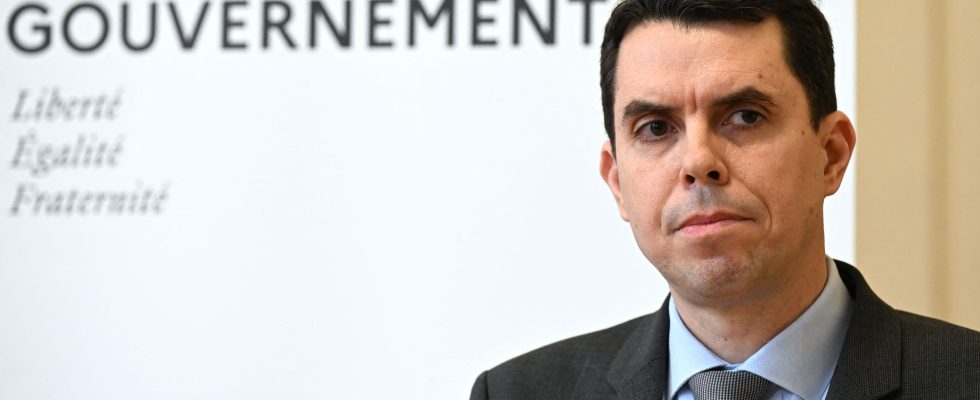Communication blow or real desire to relaunch the fight against gurus of all kinds? This Thursday March 9 and Friday March 10 are held at the Ministry of the Interior the first “National conference of the fight against sectarian aberrations”. Initiated by Sonia Backès, the Secretary of State responsible for citizenship, the objective of these two days of round tables is “to adapt the organization and the response of the State” to a rapidly growing threat. An initiative welcomed with a mixture of enthusiasm and caution by the associations working on the ground with the victims.
In recent years, the public authorities have largely abandoned this battle. Following the drama of the Order of the Solar Temple, which killed more than 70 people in Switzerland, Canada and France in 1994 and 1995, our country nevertheless acquired a solid arsenal. After several parliamentary reports, the About-Picard law was promulgated in 2001, and the Interministerial Mission for Vigilance and the Fight against Sectarian Aberrations (Miviludes) created in the process. Placed under the Prime Minister, endowed with substantial resources, it then plays a real role in prevention, response to victims, and setting the tone for State action. The Ministry of Health has set up a technical support group to inform the authorities, but also the public, about risky unconventional care practices. In the prefectures, regular meetings are organized between the different administrations and associations to organize the response in the territories.
Cult groups proliferate
“All of this worked well for fifteen years. Then it crumbled little by little, and for six years, there is nothing left”, regrets Charline Delporte, president of Caffes (national center for family support facing sectarian influence). After the departure of Serge Blisko from the presidency of Miviludes in 2018, it will be necessary to wait two years for a new president – the prefect Christian Gravel – to be finally appointed. For a moment, the very existence of this organization seemed threatened. It will eventually be attached to the Ministry of the Interior. Without calming the concerns, since the last operational head of the mission, the magistrate Hanène Romdhane, threw in the towel at the end of last year, less than 18 months after her appointment.
Meanwhile, sectarian groups proliferate. The pandemic and the development of social networks have offered an avenue to new gurus of all kinds. Last year, Miviludes indicates that it received 4,020 reports, up 33% compared to 2020. And this is only the tip of the iceberg, with the number of victims not filing a complaint. However, the Mission’s advisers are still only… seven: additional resources had been announced, but they only concerned support posts, filled by contract workers, or pooled with other services of the Ministry of the Interior.
“Miviludes has an essential role”
For the associations, one of the very first challenges of these Conferences therefore remains to strengthen this body. “We don’t need new laws. What is needed is to give Miviludes its rightful place, strengthen it, relaunch the territorial network that existed before, with relays in the prefectures but also in all the ministries”, summarizes Charline Delporte. “Without substantial announcements on this subject, we can remain in the simple communication operation”, confirms an observer.
In recent years, the prefect Christian Gravel has indeed decided to provide funding to associations, without increasing the means of his administration. This raises questions among specialists, many fearing that the public authorities will disengage even further. “We do not do the same work: Miviludes has an essential role because it speaks on behalf of the State, it has a legal weight that we do not have”, insists Didier Pachoud, president of Gemppi (study group movements of thought with a view to the protection of the individual).
Better coordination between the Mission and the associations is also expected. “Everyone must be aware of the alerts received by each other, to gain in reactivity”, underlines Pascale Duval, the spokesperson for Unadfi (national union of associations for the defense of families and the individual victims of sects). More resources are hoped for in favor of prevention, as well as a commitment from the Ministry of Health on these issues.
While pseudo-therapies proliferate, and they very often represent a gateway to a form of influence, the administration of François Braun is indeed showing great caution on these subjects, arguing that it it’s not about health. Some also note with concern that the avenue de Ségur will be represented during these two days by the Secretary of State Agnès Firmin Le Bodo. When she was still a member of Parliament, the pharmacist had indeed been one of the first to support the association “Agency of adapted complementary medicines”, a structure aimed at promoting the development of these care practices that are not scientifically validated. After two days of debate, Sonia Backès will present Friday at the end of the day the new government roadmap against sectarian aberrations. The representatives of the associations are waiting for it.
